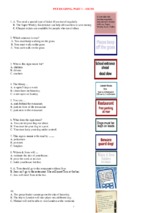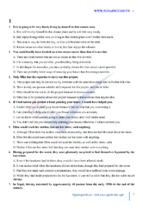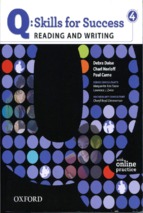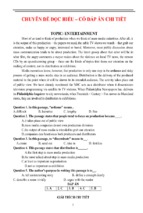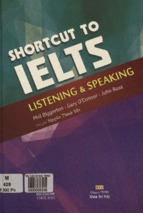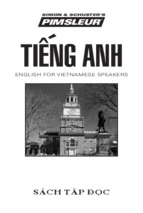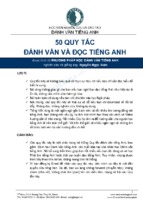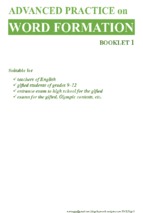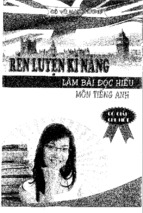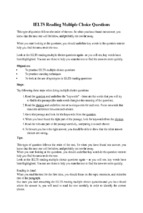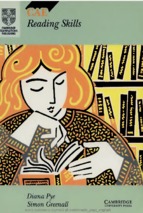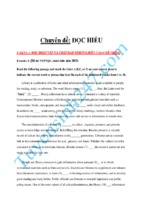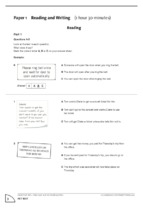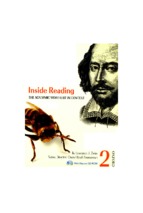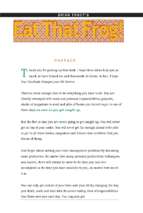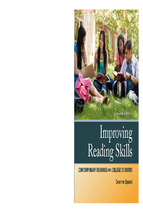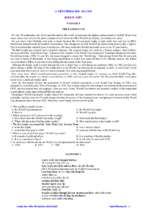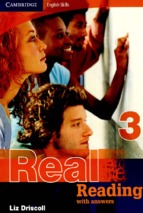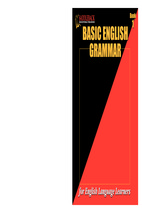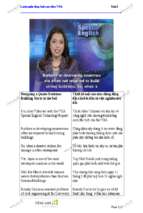English
Words
f
L.
Introduction
....... .............
... .....
...............
..........
....
.....................
Unit
Target Words
Page
1
allot, appall, cache, convenience, dearth, deliberate, dire, elapse, empathy, fanciful,
gripe, grueling, mundane, opt, outrage, paltry, rectify, resourceful, sustenance, tedious
8
2
abbey, abundant, adjoin, ample, arid, cathedral, deprive, drought, eligible, fast,
grumble, inland, moisture, nonetheless, oath, prairie, ragged, rugged, scarce, speculate
14
HUHP
3
analytic, assert, bachelor, calculus, celestial, cognitive, collision, competent, diploma, excel, geology,
harness, intellect, keen, mythology, physiology, radioactive, relativity, sociology, theoretical
20
4
administrator, affluent, audit, automate, bribe, corrupt, dispose, headquarters, incentive, infrastructure,
legislate, legitimate, manipulate, merchandise, retail, revenue, rubbish, subsidy, transaction, violate
26
5
assess, astonish, commence, essence, extract, fabulous, haste, impulse, latter, molecule, ongoing,
pharmaceutical, precise, proximity, publicity, remedy, significance, subsequent, synthetic, terminal
32
6
altitude, coastline, deter, devise, expertise, fracture, impair, implement, indigenous,
insight, limb, migraine, optimism, peculiar, proficient, quest, ridge, spouse, thrust, tolerate
38
7
aquatic, biosphere, bizarre, Celsius, coarse, companion, digest, duration, ecology, feat, infinite,
nucleus, parasite, prominent, repetitive, reproductive, temperate, tolerance, undergo, vulnerable
8
adept, barren, ceramic, culinary, dense, dignity, dominate, edible, hostile, intake, likewise,
malnutrition, medication, misconception, obscure, oppress, peel, prescription, respirator, strive
IM P
44
50
HIHHP
9
archaic, benevolent, brass, capitalism, component, dependence, diminish, drawback, fad, impose,
managerial, medieval, obsolete, peninsula, prestige, proportion, radical, refute, spectacular, weave
56
10
accountant, capitalist, contempt, dedicate, ditch, enterprise, exquisite, finance, indifferent, irrigate,
maximize, monetary, precaution, preliminary, saturate, simplicity, sow, soy, spade, upcoming
62
11
acute, aggression, banquet, biography, boost, clap, compel, dominance, gorgeous, inevitable, legacy,
masterpiece, multiple, narrate, notorious, outdated, overall, partiality, spontaneous, virtue
68
12
anthropology, applaud, appoint, compatible, competence, confer, consecutive, crude, cube, feedback,
ignorance, masculine, monument, muscular, posture, situate, supervise, symmetry, tattoo, undergraduate
74
13
brook, cater, considerate, consumption, criteria, crust, degrade, entitle, escort, external, facility,
faculty, heap, hemisphere, hound, impersonal, ornament, pedestrian, sanctuary, spectator
80
14
asset, aspect, Braille, bud, coordinate, disprove, humanitarian, hypothesis, imprint, informative,
optic, premise, rack, Renaissance, revere, simultaneous, skeptic, spatial, specify, wax
86
15
accessory, acquisition, adequate, cardboard, dilemma, elaborate, facilitate, fleet, grid,
import, infer, inflate, innate, marble, mast, nausea, naval, pouch, saturated, updated
92
Unit
Target Words
Page
16
addict, archeological, archeology, brainstorm, budget, chaotic, cite, correspond, courtyard,
estate, fraud, hydrogen, integrity, knit, outlook, parachute, prehistoric, proponent, refine, restrict
98
17
attorney, chronic, discipline, donor, fellow, gossip, graduate, graffiti, guardian, implicate,
kin, referee, sever, shaft, stab, stimulus, suspicion, terminate, theme, tuition
104
18
aggressive, amnesty, arena, auditorium, captive, combat, commonplace, compound,
corps, distract, dumb, foe, hack, meditate, nick, provoke, realm, reign, rust, sacred
110
19
accordingly, anchor, buoy, catastrophe, context, designate, distort, dock, fore, frequent,
genuine, grease, intricate, offset, overlap, precipitate, secondhand, slot, submerge, tactic
116
20
aggregate, antibiotic, circuit, complement, compress, database, equivalent, immune, input,
intimate, magnet, metabolism, microchip, phase, pinch, prevalent, quantum, ratio, spiral, viral
122
21
astounded, attribute, bilingual, clone, colloquial, cosmetics, dash, disgust, fluorescent,
furious, gulf, humanities, knot, linguist, participant, plausible, ritual, sibling, skinny, vague
128
22
acid, administration, administrative, biotechnology, cholesterol, coalition, deceptive, diabetes, eliminate,
erosion, ethics, explicit, framework, manufacture, mechanism, minimize, nectar, notion, prone, straightforward
134
23
astronomical, atom, breadth, circumference, comet, crater, crescent, debris, despair, embed,
fragment, galaxy, gigantic, gloom, radiate, roam, solitary, spectrum, sphere, status
140
24
bankrupt, conform, employ, expel, extension, forthcoming, furnish, hygiene, hygienic, landlord,
lease, mandatory, mend, mortgage, personnel, plumbing, tenant, trendy, utility, whereby
146
25
aesthetic, arrogant, bias, canyon, creek, drill, executive, fatigue, incline, nasty, perceive,
primate, primitive, stereotype, sticky, termite, thereby, trail, twig, welfare
152
26
behalf, flap, glacier, globe, horizontal, hum, inventory, inward, loaf, oracle, orbit, overview,
preview, previous, provide, recur, relevant, rite, stall, supernatural
158
27
adapt, biological, cellular, dynamic, fantasy, heredity, internal, minimal, pioneer, prescribe,
respective, revive, rigid, sequence, substitute, surgeon, therapy, transfer, transition, transplant
164
28
aquarium, arbitrary, autobiography, convention, gracious, improve, insulate, intrigue, longevity,
misplace, naughty, norm, orangutan, overload, philanthropy, probe, recipient, reptile, thrive, ultimate
170
29
antique, applicant, artifact, authentic, chronology, diplomat, epic, excerpt, fossil, humiliate,
lyric, majesty, monarch, precede, punctual, recruit, refund, register, renown, tusk
176
30
burden, compromise, craft, crook, currency, enigma, fragile, hybrid, innocence, merge,
moderate, overwhelm, perception, reunion, rig, shiver, sociable, talkative, tow, tramp
182
9
Word L i s t
allot [slat] V.
To allot something means to give it to someone.
—► The coach allotted each team five minutes to prepare a strategy.
appall [apd:l] v.
To appall means to horrify, shock, or disgust someone.
—► The boy was appalled when he saw the accident.
cache [RaeJ] n.
A cache is a hiding place forvaluable things.
—► The pirates kept their jewelry in a cache hidden in a cave.
convenience [kanvlmjans]
n.
Convenience is a state of being able to do something with little effort.
—> The Internet allows consumers to shop at their own convenience.
dearth [daxe]
n.
A dearth is an amount or supply which is not large enough.
—» There is a dearth of money in my bank account. I can’t afford a new car.
deliberate [diiibarit]
adj.
If a thing you do is deliberate, you intend to do it.
-*■ She made a deliberate effort to save money each month.
C dire [daiar] adj.
When something is dire, it is terrible and very serious.
—► The tornado created a dire situation for the small town.
r elapse [ilaeps]
v.
To elapse means to pass, as in seconds, minutes, or hours.
-* A few seconds must elapse before you can take another picture.
r> empathy [empaei]
n.
Empathy is sharing or understanding another person’s feelings.
—* The caring nurse had empathy for her patients.
C fanciful [fgensifal] adj.
When something is fanciful, it is unusual or unrealistic.
—► The girl had fanciful ideas about doing well in school without studying.
DO
gripe
tgraip] v.
To gripe means to complain constantly.
—>Lawrence always gripes when he has to do chores.
grueling
[grii:alir)] adj.
When something is grueling, it is very hard to do.
-» The climber faced the grueling task of reaching the top of the steep mountain.
mundane
[mAndein] adj.
When something is mundane, it is boring, common, or ordinary.
—» The man had the mundane chore of raking thousands of leaves into piles.
opt
[apt]
V.
To opt is to make a choice, especially when deciding in favor of something.
-* My brother likes chocolate ice cream, but I always opt for vanilla.
outrage
[autreid3 ] n.
Outrage is a very strong emotion of anger or shock.
—*■Tommy was feeling outrage when his parents said he couldn’t go to the dance.
paltry
[p5:ltri] adj.
When an amount of something is paltry, it is very small.
—► The poor man had a paltry sum of money.
rectify
[rektafai] v.
To rectify something means to correct it.
—►I quickly rectified the spelling mistakes that I had on my essay.
resourceful
[ri:s6:rsfal] adj.
When someone is resourceful, they are good at dealing with hard situations.
-+ After his boat sunk, Matt was resourceful enough to build a raft.
s u s t e n a n c e [sAstanans] n.
Sustenance is food and water needed to keep a person, animal, or plant alive.
—► Without the proper sustenance, the man will starve.
tedious
[tf dias] adj.
When something is tedious, it is long, frustrating, and boring.
-» His job involved a lot of tedious typing, filing, and organizing.
----------------------
----------------
Exercise 1
Choose the answer that best fits the question.
1. You would have empathy if you______.
a. shared sad feelings b. lost in a game
c. hurt your arm
d. ate a large meal
2. How would you feel if there was a dearth of food?
a. Happy
b. Hungry
c. Full
d. Sleepy
3. If something is a convenience, then it makes______ .
a. you very angry
b. you feel sick
c. a lot of money
d. a task easier
4. How would a resourceful person deal with a problem?
a. Ignore it
b. Give up
c. Cry and ask for help d. Find a solution
5. If something was deliberate, then it was______ .
a. done with pride
b. done easily
c. done on purpose
d. not done at all
6. How would you describe someone feeling a sense of outrage?
b. Upset
c. Tired
a. Peaceful
d. Arrogant
7. What fanciful idea might a doctor have?
a. Give a patient medicine
c. Tell them to rest
b. Be kind to them
d. Ask a fairy for advice
8. What would a tired person likely opt to do?
a. Watch a movie
b. Exercise
c. Finish a book
d. Go to bed
9. To rectify hurting your friend, you would___
a. say sorry
b. laugh at him
c. hit him
d. ignore him
c. A mean attitude
d. A long test
10. What might appall a teacher?
a. Smart students
b. A happy student
Exercise 2
Choose the one that is similar in meaning to the given word.
outrage
a. idea
b. anger
c. beauty
d. personality
rectify
a. to correct
b. to sadden
c. to bore
d. to be hard
sustenance
a. belief
b. flowing
c. food and drink
d. torn
dire
a. terrible
b. likely
c. large
d. small
opt
a. to remove
b. to yell
c. to shout
d. to choose
Exercise 3
Choose the one that is opposite in meaning to the given word.
1. tedious
a. fun
b. to read
c. to shrink
d. to love
2. appall
a. to greet
b. to lower
c. to please
d. to create
3. paltry
a. worthless
b. large
c. ugly
d. absent
4. grueling
a. rough
b. exact
c. easy
d. necessary
5. resourceful
a. foolish
b. realistic
c. impressive
d. surprising
Exercise 4
Write C if the italicized word is used correctly. Write I if the word is used incorrectly.
1.
I had a big breakfast. Many hours will elapse before I feel hungry again.
2.
Dan was a nice man, but no one would work for him because of his fanciful ideas.
3.
I was very grateful for my birthday gifts. I griped about them to all of my friends.
4.
Because there was a dearth of food at home, the family went out to eat.
5.
The puppy was happy to learn new tricks. Each one was very mundane for him.
6.
Mother allotted me and my brother the money. Now she had all the money.
7.
The boy was proud of his trophies. He displayed them in a cache for everyone to see.
8.
Because he had planned for the trap to capture his victim, he was very deliberate.
9.
The violent criminal was on the news this evening. His actions appalled most people.
10.
That man is very selfish. He has empathy for every person he meets.
The
Little Mice
Beth was a very resourceful and conservative mouse. She knew that winter was coming
and that there would soon be a dearth of food. So she decided to make gathering food for
winter her primary job. Gathering food was a grueling and mundane activity, but Beth made
a deliberate effort because she knew that it was important. She allotted herself a few hours
every day to collect beans. By winter, she had collected a massive pile and hid them in a
cache.
Beth had a sister named Mary. Mary lacked ambition. She had fanciful ideas about how
she would survive winter. She thought that food would just come to her and that she could
work at her own convenience. She opted to spend the days playing and dancing, instead of
gathering beans. When the final hours of autumn elapsed, Mary had only a paltry amount
of food stored away.
Mary realized that her food supply was too small to last through winter. She visited her
sister. Mary said, “Beth, l a mi na dire situation. I didn’t gather enough food for winter. Will
you let me share your beans? Please have some empathy for your sister!”
Beth thought for a moment. Then she replied, “Mary, I am truly sorry for you. But I will
not give you any of my beans. Instead, I will let you have my empty bag. You can still work
hard and gather enough food for the winter. It will be tedious, but you will learn the value of
hard work.”
Beth’s words appalled Mary. Mary cried with outrage, “There is too much work! I won’t
have any time to dance or play!”
Beth said, “It is crucial that you gather enough food. You must have sustenance before
you have fun. Go now, and rectify your situation.”
Mary griped some more, but she knew that her sister was right. She took the bag and went
to work gathering her own beans for the winter.
---------
Readinq Compr ehensi on
PART o
o
mmm
Mark each statement T for true or F for false. Rewrite the false
statements to make them true.
1.
Beth was resourceful and conservative, so she gathered a paltry pile of beans for her
cache.
2.
Because gathering food was tedious, Beth allotted a few hours of every day to do it.
3.
Beth did grueling and mundane work to overcome the dearth of food in the winter.
4.
Beth’s reply appalled Mary and made her reply in outrage.
5.
When the hours of autumn elapsed, Mary had a massive amount of food.
PART
O
Answer the questions.
1. What was Beth’s primary job?
2. What fanciful idea did Mary opt to try?
3. What did Mary want her sister to have empathy about?
4. How did Mary rectify her dire situation and get sustenance?
5. Even though she griped, what did Mary know at the end of the story?
Word L i s t
abbey
[sebi] n.
An abbey is a house or group of houses where monks or nuns live.
—» When the monk returned to the abbey, he went immediately to his bedroom.
abundant
[abAndant] adj.
If something is abundant, then it is available in large quantities.
—► Cakes, cookies, and candy were so abundant that the child was very happy.
adjoin
[ad3 oin] v.
To adjoin something means to be next to or attached to something else.
—►She can listen to her brother’s conversations because her room adjoins his.
a m p le [aempt] adj.
If something is ample, then it is enough or more than enough.
-» There was an ample supply of oats to feed the horses.
arid
[aerid] adj.
If a place is arid, then it is hot and dry and gets very little or no rain.
—*Not many plants grow in the arid desert.
cathedral
[kaaf:dral] n.
A cathedral is an important and often large and beautifully built church.
-» The large cathedral is full of people on Sunday mornings.
deprive
[dipraiv] v.
To deprive someone of something means to not let them have it.
- » Because the child was bad, she was deprived of her dessert after dinner.
drought
[draut] n.
A drought is a long period of time in which little or no rain falls.
—»After three months of drought, the vegetation and trees started dying.
eligible
[elid3 abal] adj.
If someone is eligible, then they are permitted to do or have something.
-* Only people who bought tickets were eligible to win a prize.
fast
[faest] v.
To fast means to go without food or drink for a period of time.
—»In her religion, they fast for five days and then have a big feast.
grumble
[grAmbal] v.
To grumble means to complain.
—*He grumbled about having to work late on Friday.
inland
[inland] adv.
If someone goes inland, they travel into the center of a country or land.
—► The river curved inland near the campground.
moisture
[moistfsr] n.
Moisture is small drops of water in the air or on a surface.
—>If you breathe on a window, moisture from your breath collects on the glass.
nonetheless
[nAnSsles] adv.
If something happens nonetheless, then it occurs despite some other thing.
—»She tried to keep the dog out of the mud, but it got dirty nonetheless.
Oath
[oue] n.
An oath is a formal, often public, promise.
—►Judges must take an oath to be fair to everyone in court.
prairie
[preari] n.
A prairie is a large flat area of grassland.
—» The prairie was perfect for a farm because there were hills and trees.
ragged
[raegid] adj.
If something is ragged, then it is old, torn, and falling apart.
—► They could see his toes through the holes in his ragged shoes.
rugged
[rAgid] adj.
If an area of land is rugged, then it is rocky and difficult to travel through.
—► Their car couldn’t make it far along the rugged roads.
s c a r c e [skears] adj.
If something is scarce, then it is in a very small amount.
—► When gasoline was scarce, we rode our bikes, instead of driving, to school.
speculate
[spekjaleit] V.
To speculate means to guess about something.
—►My sister looked at the sky and speculated that it would rain tomorrow.
Exercise 1
Choose the answer that best fits the question.
1. What would probably happen if you deprived someone of food?
a. They could die.
b. They could feel relieved,
c. They could feel happy.
d. They could feel peace.
2. A rugged surface would feel.
a. very rough
c. cool and slippery
b. smooth
d. warm and hard
3. If you were speculating about something, you would be doing what?
a. Stating a fact
b. Looking for truth
c. Making a speech
d. Making a guess
4. Where would someone take an oath?
a. At the subway
c. On vacation
b. In court
d. In their sleep
5. If something were covered with moisture, then it would feel.
a. hard
b. rough
c. soft
d. wet
Exercise 2
Fill in the blanks with the correct words from the word bank.
......................................... ................ W o r d
abundant
arid
moisture
eligible
Bank
I .............................................................
cathedral
oath
scarce
rugged
fast
prairie
Traveling across the 1_____________ was more difficult than it seemed.
The ground was very 2_____________, and the grass was high.
John had been in a place with a(n) 3______________climate for a long time.
He forgot that in a humid place everything was covered with 4 _____________ .
The people who attend that church 5______________for two weeks in March.
Then they go to the 6______________where they pray and eat a small meal of soup.
We didn’t know what to do with such a(n) 7______________supply of wood.
We had gotten used to making small fires when it was so 8_____________ .
In order for the students to attend the dance, they had to take a(n) 9.
Those that didn’t promise to be on their best behavior were not 10 _
UNI T
Exercise 3
Write C if the italicized word is used correctly. Write I if the word is used incorrectly.
1.
Climbing up the prairie was more difficult without the help of ropes.
2.
There was no way he could mend the holes in his shirt. It was too rugged to wear.
3.
In some countries, only people who owned land were eligible to vote.
4.
The capital was in the middle of the country. They had to travel inland to get there.
5.
He knew she didn’t like him, but he helped her nonetheless.
E x er c i s e 4
Write a word that is similar in meaning to the underlined part.
1. That part of the country is so hot and dry that no one lives there.
2. After getting off the boat, they took a train toward the center of the country.
3. They survived through the time in which no rain fell by carrying water down from the hills.
4. This house for the monks was built well over 200 years ago.
5. He knew he’d get in trouble, but he stole the money despite the punishment.
6. He guessed that the visitor’s team would win the game.
7. The number of people helping to clean the trash near the river was more than enough.
8. There was a small park that was next to the yard surrounding the church.
9. Because his pants were old and torn. Dad bought him a new pair.
10. The long lines did not allow her of a chance to buy a ticket for the concert.
The
■
Helpful Abbey
It had not rained on the prairie for several months. Because of the drought, the climate
had become very arid. There was no moisture left in the soil. No crops could grow in the dry
ground. By wintertime, the people had nothing to eat.
The hungry families heard about an abbey near the mountains where food and water was
still abundant. So they traveled inland, across the prairie, to the abbey.
At first only a few families arrived, seeking food and shelter. Then there was ample food.
The monks fed them and let them sleep in the small cathedral.
Soon, however, more families were arriving every day. These people had to travel farther,
so they were in worse condition. The rugged journey had made their clothes ragged. They
were cold and tired. The tiny cathedral was soon full.
Food became scarce. The monks began to grumble. They began to speculate that there
would be no food. “If more families come, we won’t make it through the winter,” said a young
monk. “We must ask some of them to leave.”
The abbot heard this. “We cannot do that,” he said. “It would be wrong to deprive them
of food and shelter. We took an oath to help those that need help. All here are in need, so
all are eligible to receive our food and shelter.”
“But we won’t have enough,” the monk said.
“That might be true, but we must help them nonetheless. We will fast,” the abbot replied.
“Also, we will give our rooms in the abbey to those sleeping outside, and we will sleep in the
churchyard that adjoins the cathedral.”
The monks were reluctant at first, but they
did what the oldest monk said. By the end of
winter, there was still enough food and shelter
for everyone. They learned that sometimes
helping others means you must give more
help than you first expected.
Readi ng Compr ehens i on
PART O
Mark each statement T for true or F for false. Rewrite the false
statements to make them true.
1.
The moisture in the soil was gone because a drought made the prairie become arid.
2.
The hungry families traveled inland to an abbey that still had abundant food.
3.
Food was scarce, but the monks had to deprive the families nonetheless.
4.
At first there was ample food and enough room in the cathedral for everyone.
5.
The rugged journey to the abbey had left many people’s clothing looking ragged.
PART 0
Answer the questions.
1. According to the abbot, who was eligible to receive the monks’ help?
2. When the monks grumbled, what did the young monk speculate would happen if more
families arrived?
3. Why did the monks fast and sleep in the churchyard that adjoined the cathedral?
4. What was the oath that the monks had taken?
5. What did the monks learn about helping others?
Word L i s t
analytic
[asneUtik] adj.
If something is analytic, it is related to logic and reasoning.
—» The analytic article criticized the new plan and presented one of its own.
a s s e r t [asart] v.
To assert a fact or belief means to state it with confidence.
-* He asserted that his mother’s cooking was better than his best friend’s.
bachelor
[bsetfalar] n.
A bachelor is an unmarried man.
—►Since he was a bachelor, Jason did his shopping by himself.
calculus
[kaelkjalas] n.
Calculus is an advanced type of mathematics.
—►By using calculus, scientists determined small changes in the stars’ brightness.
celestial
[salestjal] adj.
If something is celestial, it is related to the sky or to outer space.
-» Comets are celestial objects that are rarely seen.
cognitive
[kagnativ] adj.
If something is cognitive, it is related to learning and knowing things.
—»After her physical examination, her cognitive strengths were tested.
collision
[kali3 an] n.
A collision is the act of two things hitting into each another.
—► The collision between the two cars created a loud noise.
Competent
[kampatent] adj.
If someone is competent, they are able to think or act successfully.
—►Competent employees are much better than unknowledgeable ones.
diploma
[diplouma] n.
A diploma is a certificate proving that someone has completed their studies.
-» After four years of college, Mary finally had a diploma.
excel
[iksel]
V.
To excel at a subject or activity means to be very good at it.
—►Jenny excels at playing the piano.
geology
[d3 i:alad3 i] n.
Geology is the study of the Earth’s natural structures and how they change.
—► Because he studied geology, he knew how the mountains were formed.
harness
[ha ;mis] v.
To harness something means to control and use it, usually to make energy.
-*■ The sails harness the wind in order to move.
intellect
[fntalekt] n.
An intellect is a person’s ability to understand things easily.
—»She was known for her quick and strong intellect as well as her beauty.
k e e n [ki:n] adj.
If someone is keen, they are intelligent.
—> Only the keenest of students could have solved that math problem.
mythology
[miedlad30 n.
Mythology is a group of stories from a particular country or region.
—►Egyptian mythology was the basis for a religion.
physiology
[fizialad3 i] n.
Physiology is the study of the various parts of living things.
- » His work in physiology helped him understand how the human body works.
radioactive
[reidiousektiv] adj.
If something is radioactive, then it lets out, or is related to, radiation.
—►Radioactive materials can be very bad for anyone’s health.
relativity
[relativati] n.
Relativity is a set of ideas about time and space developed by Albert Einstein.
—*Relativity teaches that light travels at the same speed in the universe.
sociology
[sousialad 3 i] n.
Sociology is the study of human society, its organizations, and problems.
—►Sociology teaches that people’s problems are a result of their society.
theoretical
[ekaretikal] adj.
If something is theoretical, it is based on theory rather than experience.
-* His conclusion was only theoretical and not meant to be publicized.
Exercise 1
Choose the answer that best fits the question.
1. What is geology the study of?
a. Earth’s life forms
c. Earth’s orbit
b. Earth’s structures
d. Earth’s atmosphere
2. In physiology, you would probably study something like______ .
a. the ocean’s waves
b. the soil
c. time and space
d. parts of living things
3. Which of the following would NOT be considered celestial?
a. Stars
b. Comets
c. Navigation
d. Meteors
4. What else does sociology deal with besides people and their culture?
a. People’s problems
b. Plant reproduction
c. Alien life forms
d. Ocean currents
5. If you excel at something, then that means you are______ .
a. incompetent
b. brave
c. literate
d. good at something
Exercise Z
Choose the one that is similar in meaning to the given word.
1. intellect
a. name
b. ability
c. speed
d. growth
2. calculus
a. content
b. religion
c. design
d. math
3. assert
a. state
b. explode
c. purchase
d. permit
4. cognitive
a. friendly
b. expensive
c. colorful
d. learning
5. diploma
a. money
b. mammal
c. license
d. tower
6. mythology
a. folklore
b. business
c. freedom
d. beauty
7. analytic
a. official
b. ancient
c. logical
d. patient
8. harness
a. use
b. expand
c. discover
d. insist
9. competent
a. brave
b. capable
c. handsome
d. broken
b. scar
c. school
d. crash
10. collision
a. hammer
UNIT
Exercise 3
Write C if the italicized word is used correctly. Write I if the word is used incorrectly.
1.
. In physiology, we studied various types of rock and the process that made them.
2.
. She feared that if no one married her, she’d be a bachelor her entire life.
3.
. Many old factories harnessed rivers and streams to power their equipment.
4.
. Her knowledge of different societies came from her work in sociology.
5.
. If the two bikes hadn’t turned at the last moment, there would have been a collision.
6.
7.
8.
9.
10.
. In geology, we learned about the importance of our bones.
.The only proof that the new rocket would work was theoretical.
. The car excelled every time he stepped on the gas pedal.
. Learning about calculus in my literature class was a really enjoyable time.
. The test proved that Mark was keener than his older brother Dave.
Exercise 4
Write a word that is similar in meaning to the underlined part.
1. She really learned a lot from just one class of the beliefs and stories of different cultures.
2. When he states the fact with confidence that flowers can grow here, you believe him.
3. The tests will prove whether or not his discovery is real and not just based on theory.
4. The dangerous thing about nuclear power is the radiation waste it produces.
5. John has good learning skills that have helped him in his studies.
6. The stars and moon in outer space objects lit the path so I could see where I was walking.
7. Having a certificate of completed studies will give him more options for the future.
8. Albert Einstein’s ideas about time and space changed both science and the world.
9. You have to be very intelligent in orderto solve this puzzle in a short amount of time.
10. Every day the unmarried men came to her home to see which of them she might choose.
The
Bachelor’s Lesson
A keen young bachelor had finished his studies at the university. As soon as he had
received his diploma, he asserted to everyone he met that he was the smartest person in
town.
“I excel at everything I study,” he said, bragging about his knowledge. “I’ve mastered
calculus and physiology. I even understand the great theoretical teachings of science, such
as relativity. There is nothing that I don’t know. Whether it’s the movements of celestial
objects, like planets and stars, or how to harness the power of radioactive substances, I
know everything.”
But actually, there was something the bachelor did not know. Though his analytic abilities
were great, he failed to notice he was missing something very important in his life.
One day while walking through town, the bachelor witnessed a collision between two
cars. Both drivers appeared to be injured, but the scholar only stood and watched.
He thought to himself, “Those idiots should have been more alert. They really must not
be very competent.” He never thought the drivers needed help.
“Please help me,” said the female driver in a weak voice. “Help me, too,” said the male
driver. “I’m hurt and can’t move.”
Suddenly the bachelor realized he was the only person near the accident. He quit
thinking and ran to help the drivers. He carefully helped them out of their vehicles and then
called an ambulance.
The drivers were saved, and the bachelor felt the best he had in his
entire life. Studying mythology, sociology, and geology didn’t give
him this wonderful feeling. It was the act of helping others, not his
cognitive skills, that gave him this great feeling.
He had learned an important lesson. He learned that intellect isn’t
everything; being helpful is just as important. “Having only a brain is
not enough,” he thought. “You must also have a heart.”
- Xem thêm -

